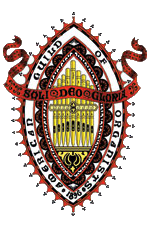Postludes Discontinued?
For years, congregants have tended to jump up and exit during organ postludes. The rector of the church I serve is now requesting that postludes be discontinued for that reason. Is this a modern trend or is my church an exception? -- Post-luded Postluder
Dear Post-luded,
Thanks for your fascinating question. Confessing my initial inability to find a good answer, I discussed the topic with Dr. Douglas Moorhead, my lifelong friend from graduate school. Here is a portion of his response:
I have never heard of a church abolishing postludes. I am totally against this idea, because a postlude is the connection between worship experience and secular world experience. I find that walking out of a church with a crowd of people in silence or even engaged in amicable chatting without a music background is just too sudden a change from a holy and sacred sound environment.
The purpose of a postlude is to send people on their way into the world. It might be preferable for people to leave during the postlude than to feel that they have to sit there listening to the music just to be polite. Some churches have set a precedent of having excellent music at the end of a service, and people want to remain in the pews listening.
Continuing with Doug’s rationale, the Latin words “pre-lude” and “post-lude” mean to “play before” and to “play after.” The intent of each is to form an effective transition between secular and sacred environments. If most congregants arrive during the prelude, we might likely expect most of them to depart during the postlude. If they do so, the postlude is still serving its intended purpose: to form a bridge between sacred and secular space. Of course it is splendid if worshippers wish to remain seated for the entire postlude; but technically the service ends with the benediction, followed thereafter by postluding.
If your pastor continues to discourage postludes, perhaps you might suggest that, following conclusion of the service at the benediction, you would then immediately begin to practice the prelude for the following Sunday!
Happy Pre- and Post-luding to you!
John Walker
